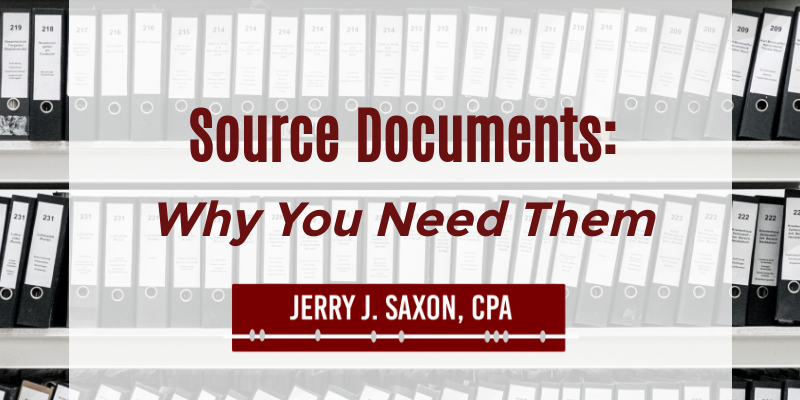Keeping your business’ source documents is a must for all businesses. Examples of source documents include sales, payroll, canceled checks and much more. These documents support your bookkeeping transactions. Source documents will help you prove the legitimacy of your books if the IRS were to select your business for an audit.
For a source document to be valid it must contain at least majority or all of the following information:
• Why the transaction was made
• Who was involved in the transaction
• Date it occurred
• Dollar amount of the transaction
Luckily, the IRS accepts digital copies of source documents, which can help eliminate the need of having rows of file cabinets. The IRS does suggest keeping copies of source documents a minimum of seven years to infinite time. At any given time, the IRS has the power to audit your business for any given year. Since we do live in the digital age it is much easier to keep those documents with minimal physical space.
Keeping your expenses and books well documented can truly help you out in the long run. By having everything organized it is easier to create yearly reports that can help create a great financial record for your business. I would suggest keeping your source documents, tax return, assets and liabilities, profit and loss statements organized together by year. Not only will this help if you are audited for a particular year, but if you ever think about merging or selling your business your income information is at an arm’s reach. Potential buyers will want to see your yearly books to create their own financial forecast.
The more detailed you are in keeping your receipts the better job your accountant can do in keeping your books in order. It is better to have more saved documents than miss one important receipt. Your accountant will be able to get rid of the documents you don’t need but they will not be able to create the ones you are missing.
If you have any questions, you can give me a call at 405-604-3013.


Recent Comments